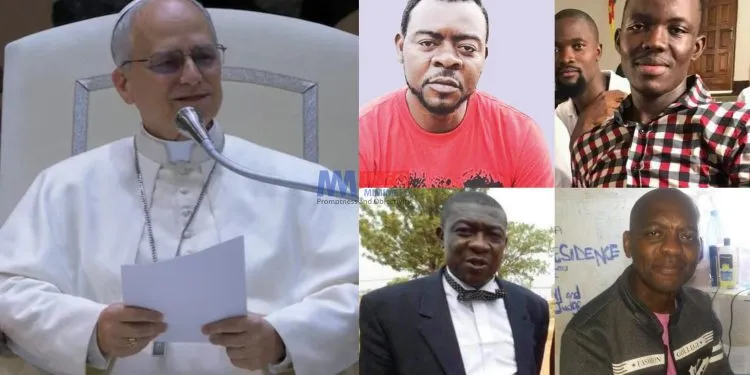In his first official address to journalists at the Vatican, Pope Leo XIV issued a powerful call for the release of journalists imprisoned worldwide, emphasising the essential role of the media in defending truth and human dignity. The remarks come amid growing concern about declining press freedom across the globe — including in countries such as Cameroon, which remains one of the most repressive environments for journalists in Africa.
Pope Urges Protection of Press Freedom
Speaking in the Paul VI Audience Hall, the newly elected head of the Catholic Church said he stood “in solidarity with journalists who are jailed for seeking and reporting the truth,” adding that “their suffering challenges the conscience of nations and the international community.”
Pope Leo XIV described press freedom as a “precious gift” that must be protected and called on journalists to avoid contributing to societal division. “We do not need loud, forceful communication,” he said. “But rather communication that is capable of listening and of gathering the voices of the weak who have no voice.”
He warned of the ethical responsibilities that accompany emerging technologies, stating that artificial intelligence requires “responsibility and discernment” to benefit all humanity.
Cameroon Among Africa’s Worst Offenders
The pope’s call resonates strongly in Central Africa, where Cameroon continues to rank poorly in global press freedom indices. He warned of the ethical responsibilities that accompany emerging technologies, stating that artificial intelligence requires “responsibility and discernment” to benefit all humanity.
Despite government claims that journalists operate with “complete freedom and safety,” international watchdogs tell a different story. The Committee to Protect Journalists (CPJ) identified Cameroon as the second worst jailer of journalists in Africa, behind only Eritrea. As of 2024, at least five Cameroonian journalists remain behind bars, many sentenced under laws used to stifle press activity.
Notable cases include the imprisonment of Amadou Vamoulké, Kingsley Fomunyuy Njoka, Mancho Bibixy, Thomas Awah Junior, and Tsi Conrad due to their professional work. Others, such as Samuel Wazizi and Martinez Zogo, died under suspicious circumstances, drawing condemnation from human rights groups.
Media Plurality vs. Press Freedom
Cameroonian authorities continue to argue that the existence of hundreds of registered media outlets demonstrates press freedom. However, critics say this media plurality masks a repressive environment in which journalists face arbitrary arrests, censorship, and violence.
In his address, Pope Leo XIV indirectly addressed such contradictions, urging media institutions to serve truth and justice rather than power or partisanship. “The media must ensure that the ‘precious gift’ of free speech is protected,” he said.
Global Context: Press Freedom in Decline
Worldwide, the state of press freedom continues to worsen. In 2024, the CPJ reported that authorities imprisoned 361 journalists, marking one of the highest numbers ever recorded. The 2025 World Press Freedom Index categorises the global media environment as “difficult” for the first time, driven by rising threats, financial instability, and censorship.
The pope’s speech, therefore, reflects growing concerns over the erosion of journalistic rights and points out the importance of working alongside governments, civil society, and international bodies to safeguard freedom of expression.
A Message of Unity and Responsibility
In closing, Pope Leo XIV reminded journalists of their power to shape society through responsible communication. “Say no to the war of words and images,” he said, calling for media that amplifies the voices of the unheard and contributes to peace rather than polarisation.
Cameroon and other nations now face increasing scrutiny regarding their treatment of journalists. As such, the pope’s message acts as a timely reminder that defending truth and press freedom is not just a responsibility for journalists but also a moral obligation.



